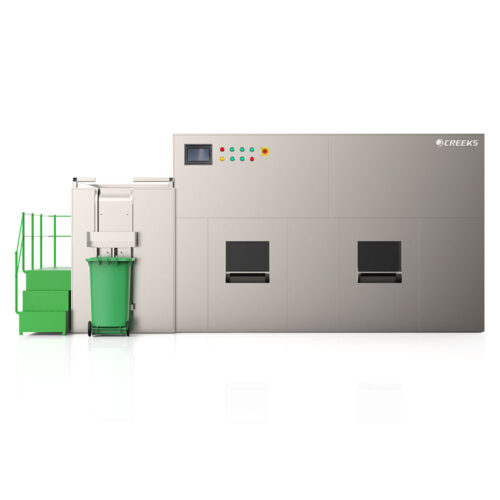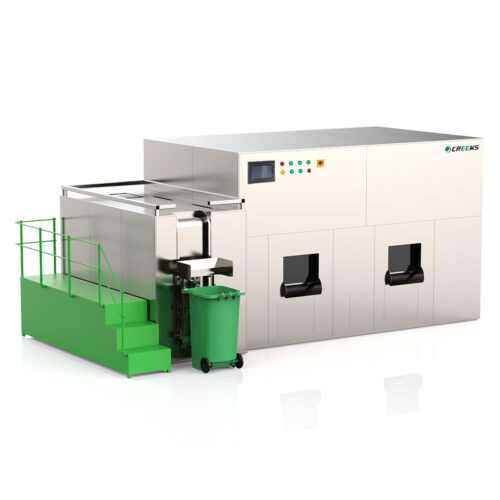In 2024, the food waste composting machine market is experiencing a surge, underscored by an increasing global commitment to sustainability. With a projected market growth from $2.88 billion in 2023 to $3.1 billion in 2024, and further to $3.98 billion by 2028, these machines are becoming pivotal in tackling food waste in kitchens across residential and commercial settings.
Understanding Food Waste to Compost Machine
Introducing the Creeks Food Waste to Compost Machine, a game-changer in organic waste management. It utilizes a Microorganism-Based 24-hour Composting System for efficient waste transformation. It is fully automatic and user-friendly and operates within 24 hours, reducing waste disposal headaches.
Our food waste to compost machine fits various spaces. Accepting segregated organic waste, it produces dry organic compost. It’s robust and reliable, constructed with high-quality stainless steel, and boasts PLC-based control, SS shaft, and overload protection. Join the composting revolution with Creeks.

How Does Food Waste to Compost Machine Works?
More Benefits of Composting Food Waste
INDUSTRIAL COMPOST SYSTEM


